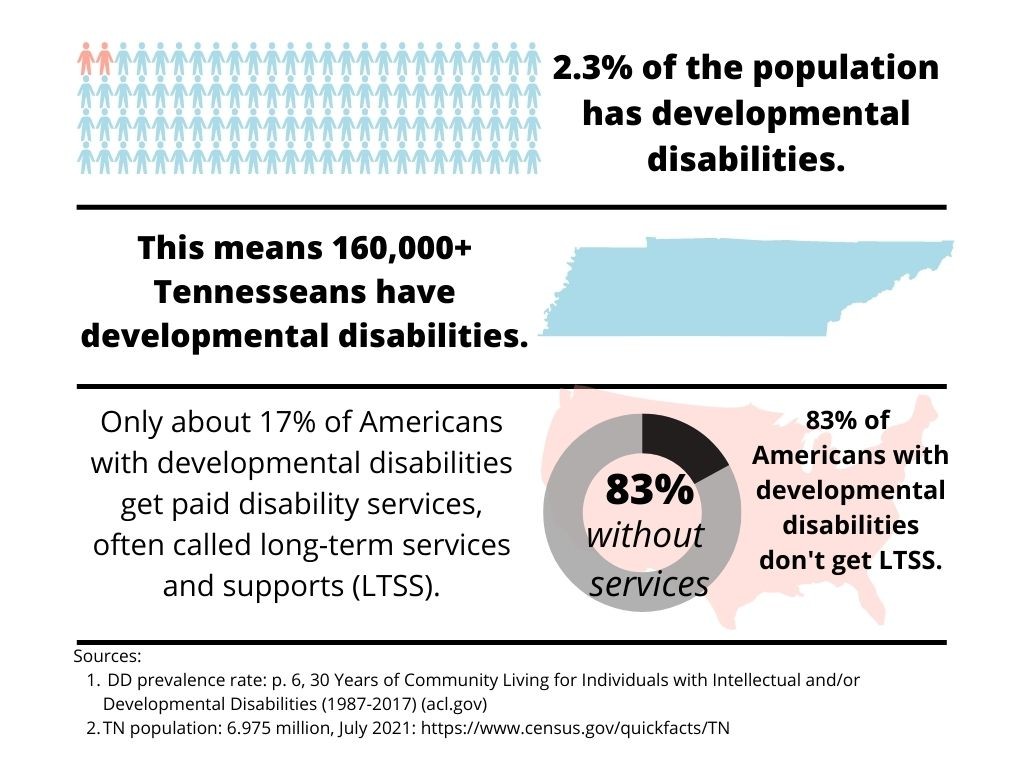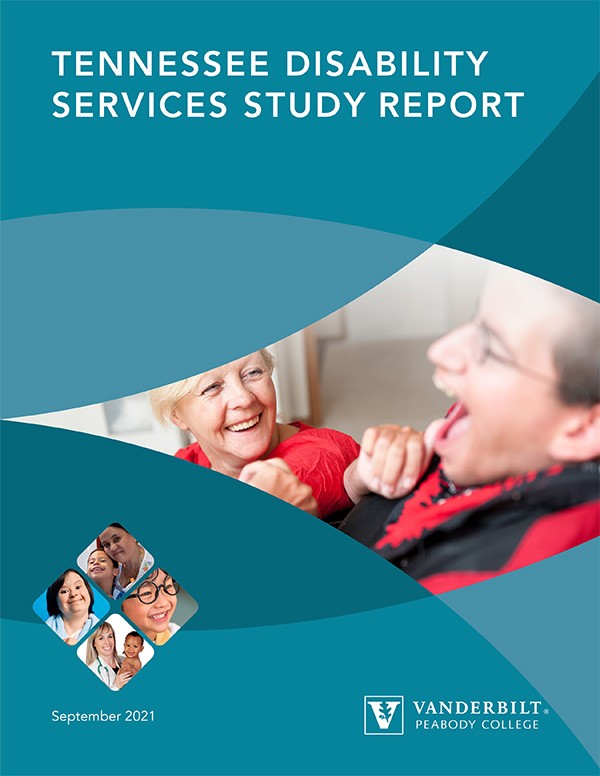TN Developmental Disability Data

What is a developmental disability?
According to the federal Developmental Disabilities Act, which defines the work of councils like ours, a developmental disability is:
“A severe, chronic disability which originated at birth or during childhood, is expected to continue indefinitely, and substantially restricts the individual’s functioning in several major life activities.”
The DD Act was revolutionary for this definition based on functional support needs. It included people who had been left out by past diagnosis lists. However, as examples, some common developmental disabilities include:
- Autism
- Intellectual disabilities
- Cerebral palsy
- Spina bifida
- Down syndrome
How many people have a developmental disability in Tennessee?
About 2.3% of the population has developmental disabilities, which means approximately 160,000 Tennesseans have developmental disabilities (p. 6, 30 Years of Community Living for Individuals with Intellectual and/or Developmental Disabilities (1987-2017) (acl.gov)).
(Note: Tennessee’s definition of "intellectual disability" and "developmental disability" can be found in state law in Tenn. Code Ann. § 33-1-101. Find directions for how to read those definitions, which are defined a bit differently than the DD Act definition, on this page on our website.)
Why does this number matter?
It helps us know who we’re reaching with support – and who we’re not.
- In Tennessee, approximately 15,000 people with developmental disabilities receive long-term help for their daily needs*, which is about 9% of the people who need it.
- Nationally, an estimated 17% of people with developmental disabilities get regular help through paid supports in their homes (p. 6, 30 Years of Community Living for Individuals with Intellectual and/or Developmental Disabilities (1987-2017) (acl.gov)).
These numbers tell us that most people with developmental disabilities do not have access to long term supports and are supported by family members, both in Tennessee and across the nation.
Councils on Developmental Disabilities exist to reach ALL people with information, resources and support. We are the only government entity that works across the entire disability system, across the lifespan, to help it work better and reach more people.
Our Council is here to make sure ALL Tennesseans with developmental disabilities and their families are getting the support they need for good lives.
- That means making it easier to find and connect with services through our long-time work to solve that need through TN Disability Pathfinder.
- That means coaching systems and families to think about supports using tools like the LifeCourse Framework.
- That means testing new ideas to address gaps and barriers through grants, pilot programs, and partnerships.
- That means finding new ways to get resources to groups of people who have been historically left out.
Keep exploring our website to see other ways we’re working to make sure ALL Tennesseans with developmental disabilities have support to live good lives in their communities.
*Around 6,000 people are enrolled in our home and community-based services program for people with developmental disabilities – called Employment and Community First (ECF) CHOICES. TN’s Katie Beckett program is a smaller home and community-based services program supporting children with an IDD along with complex medical and/or behavioral needs for up to 3,000 families. Around 7,000 people with intellectual disabilities are also served in Medicaid-funded programs overseen by the TN Department of Intellectual and Developmental Disabilities known as 1915c waivers, which closed to new people in 2016.
There are other kinds of short-term paid government supports that people may use like the Family Support program or Vocational Rehabilitation Services, but ECF CHOICES is now the main way that people with developmental disabilities in TN get long-term help for their daily needs.
